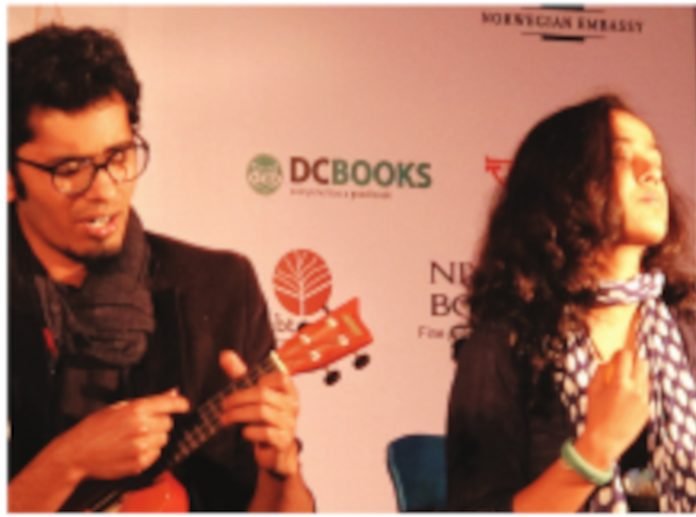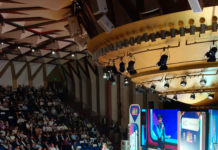Jaipur is different. It is the most accessible of all literary fests where you sit amongst the janta, the people and literally enjoy getting drenched with the torrent of high quality discourse that emanates from the dozens of JLF narvratnas at the front lawns and the Char Bagh, the Durbar or the Baithak.
The sessions at Jaipur move like the happenings of amagnum opus where you find fresh and interesting material every time you turn a page. After every JLF session you turn a new leaf, you find crowds moving out, the chairs emptying and another sea of people streaming in, filling the halls or the lawns to the brim, eager and anxious to soak in the content, waiting for the next session to start. Each session, brings new speakers and a new audience…andtheshowgoeson… every session is a houseful . . . almost always overflowing.
As speakers and moderators share their views and experience the atmosphere is attentive, young and old glued to their seats, or standing patiently on all sides for hours, listening spellbound. The eclectic brings new speakers and a new audience…andtheshowgoeson… every session is a houseful . . . almost always overflowing.
As speakers and moderators share their views and experience the atmosphere is attentive, young and old glued to their seats, or standing patiently on all sides for hours, listening spellbound.
The eclectic coherence of discussion generally leaves one a bit wiser and often more than a bit humble. This year too the JLF sessions were packed chock a block with lakhs attending . . . including the ever-increasing presence of the student community. Women visitors outnumbered men by a mile establishing their growing leadership in the writing, editing, publishing, reading and communication domain.
Though the author list last year seemed more powerful, this year’s delegates were no less illustrious with Nobel laureate Amartya Sen, Jhumpa Lahiri, Meghnad Desai, Prasoon Joshi, Suhel Seth, Jim Al Khalili and Dipankar Gupta.
Among the 260 authors were the bilingual Chinese author Xiaolu Guo, Anita Nair, Rana Dasgupta, Adrian Levy, Somnath Batabyal, Ganesh Devy, Ved Mehta, Irrfan Khan, Mukulika Banerjee, Michael Sandel and DSC prize winner for South Asian Literature, Cyrus Mistry.
The world spends more on junk than on education
Amartya Sen delivering the keynote address on the first morning was for once, unsure of who would be the ideal leader of India. The left liberal Sen was torn between wishing for a right liberal party and a left progressive mandate in the next general election — apparently more utopian than real seeing the current political situation. There were very interesting sessions of Ganesh Devy and Shekhar Pathak speaking on endangered languages of India, Cheryl Strayed and Robyn Davidson discussing restless women, Neerav Patel with the well versed Irrfan Khan bringing life and vigour to the Bhaskar bhasha series.
Suhel Seth’s reading of Dostoyevsky’s Crime and Punishment was followed by an interesting discussion on what was crime and how education helped in giving it various perspectives. Homi Bhabha spoke of how Mahatma Gandhi confessed to crime in South Africa for the sake of bringing world attention to his non- violent disobedience of apartheid. Martin Puchner said that he had personally heard Ronald Reagan and Margaret Thatcher say that Mandela was a dangerous terrorist; and lo and behold – just four years down the line he was being called a saint. Puchner went on to add that human education and awareness was the most important factor in viewing what is crime and how it should be tackled. “Unfortunately,” said Puchner, “the world last year spent US$ 45 billion on junk mail and just US$ 10 billion on primary and secondary education. Such a mindless addiction to consumerism may not help the cause of a civil society and seeing crime in the right perspective.
















